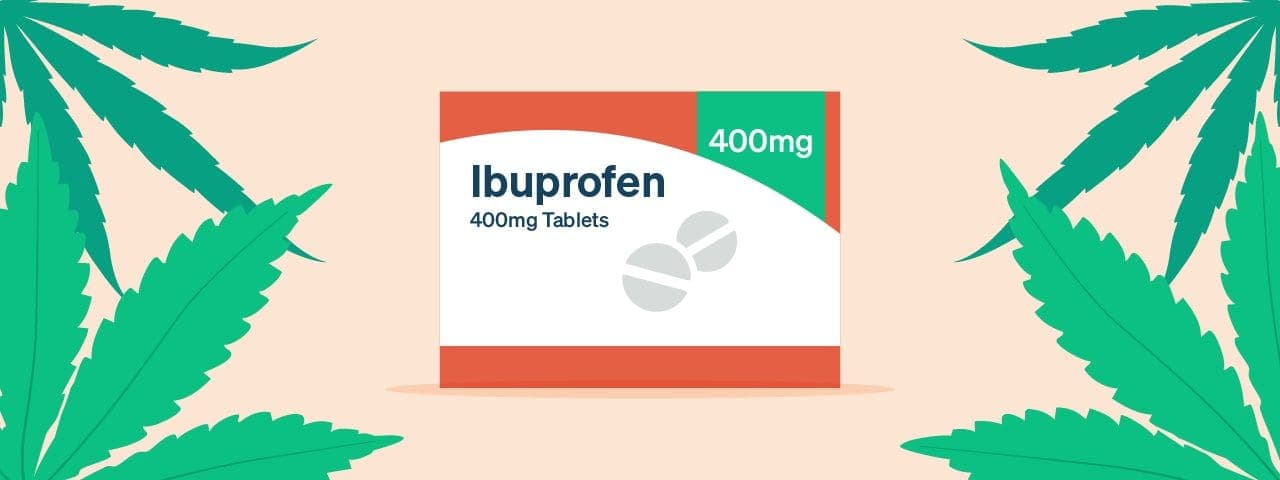How to get rid of cannabis headaches

Article written by

April AcernoContent Writer
Content reviewed by

Deborah Garcia DNP FNP-BCMedical Reviewer
Some research has found that cannabis may help reduce headache and migraine pain.
But for some people, using cannabis can actually cause a headache or worsen its symptoms.
Cannabis headaches, sometimes called “THC headaches,” can be a side effect of using cannabis. Headaches can also be a sign of cannabis withdrawal.
Find out why cannabis headaches can occur and how to remedy them.
Get your medical marijuana card
Can weed give you a headache?
Research on cannabis causing headaches is very limited. That said, it’s possible to experience a headache as a side effect of cannabis use.
In one self-reported survey examining medical cannabis side effects, several respondents reported that they noticed headaches after using cannabis. However, one participant mentioned that existing sinus issues might have played a role.
Cannabis side effects, including headaches, are more likely to occur if you’re new to using cannabis or consume more than your usual or recommended dose.
Sometimes, a headache can be indirectly linked to cannabis use. For example, cannabis can increase your appetite. This may lead you to eat large amounts of certain headache trigger foods, such as processed meats high in nitrates.
Long-term, frequent cannabis use can lead to a condition called cannabis hyperemesis syndrome, which can cause extreme vomiting. This can lead to dehydration, and headaches are a common side effect.
Can smoking weed cause headaches?
While it’s possible that smoking weed might cause a headache, there’s no evidence that smoking cannabis increases the risk of headaches more than other consumption methods. More research is needed to fully understand headache as a side effect of cannabis use.
What is a cannabis ‘hangover’?
A cannabis hangover refers to symptoms that linger after the immediate effects of cannabis have worn off.
Cannabis hangovers aren’t common, according to research, though studies are limited.
One small study of 12 frequent cannabis smokers found that cannabis does not cause severe hangover symptoms like alcohol does. A larger research review also reported that tetrahydrocannabinol (THC), the main intoxicating compound in cannabis, does not cause significant next-day side effects.
Currently, headaches are not considered to be a common side effect after cannabis use.
Get your medical marijuana card
Cannabis withdrawal headaches
Cannabis withdrawal refers to the physical and mental symptoms some people can experience after suddenly stopping cannabis use.
It’s possible to experience headaches during cannabis withdrawal. However, according to a research review, headaches are less common than other cannabis withdrawal symptoms like anxiety, irritability, loss of appetite, and sleeping difficulties.
In a self-reported survey of 469 adult cannabis smokers, 23% reported headache as a withdrawal symptom.
Cannabis withdrawal symptoms can vary widely from person to person. They typically begin within 24 to 48 hours after stopping use, lasting for up to 6 days at their peak. For individuals who consume frequent, high doses of cannabis, withdrawal symptoms can last for 3 weeks or longer.
If you use medical cannabis to manage headache or migraine pain, your symptoms may return once you stop using it.
If withdrawal symptoms are severe or long-lasting, work with your doctor to develop a symptom management plan.
How to relieve a THC headache
If you experience a headache after using cannabis or during withdrawal, these methods may help you find relief:
- Take an over-the-counter (OTC) pain reliever: Options like ibuprofen may help ease milder headache symptoms.
- Stay hydrated: While dehydration itself isn’t linked to cannabis use, staying hydrated can help prevent headaches or reduce their severity.
- Rest when you need to: If you experience a headache after using cannabis, try resting or sleeping until the pain wears off.
Tips for preventing a cannabis headache
To reduce your risk of developing a cannabis headache, follow these tips:
- Hydrate and eat beforehand: Drink plenty of water and eat a balanced meal before using cannabis. This can help prevent dehydration and reduce the urge to snack on foods that can trigger a headache.
- Consider the THC content: If you often get headaches after using cannabis, it may be linked to the amount of THC in the product you’re using. Try switching to products that have lower THC levels and higher amounts of cannabidiol (CBD) to help balance the effects.
- Start low and go slow: If you’re new to using cannabis, start with a low dose and gradually increase it in small increments, as needed, to achieve the necessary therapeutic effects.
- Check the ingredients: Some cannabis products, like gummies, may contain ingredients that can trigger a headache, such as artificial sweeteners. Always review the ingredients on the product label before buying.
When to see a doctor
In most cases, cannabis-related headaches are mild and get better on their own.
However, sometimes a headache can be a sign of a more serious issue. Schedule an appointment with your doctor if:
- You experience headaches often while using cannabis
- Your headaches are severe or last longer than 24 hours
- Your headaches occur alongside other concerning symptoms, such as vomiting or fainting
Your doctor can help determine whether cannabis is contributing to headache pain and recommend the right approach to address it.
The bottom line: Cannabis headaches can happen, but they aren’t common
It’s possible to experience a headache after using cannabis or during withdrawal.
In most cases, cannabis-related headaches can be managed at home with rest, hydration, and OTC pain relief. But if your headaches are severe, long-lasting, or accompanied by other concerning symptoms, you should contact a healthcare professional.
Work with a Leafwell provider to develop a personalized cannabis treatment plan that addresses your goals while minimizing your risk of headaches and other side effects.
Frequently asked questions
Find out more about THC headaches with answers to these common questions.


